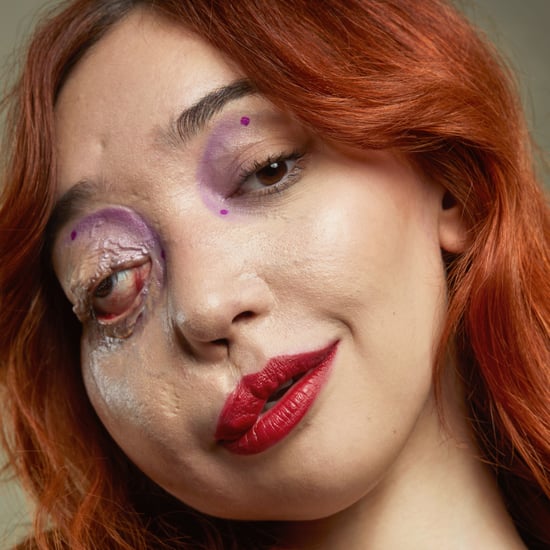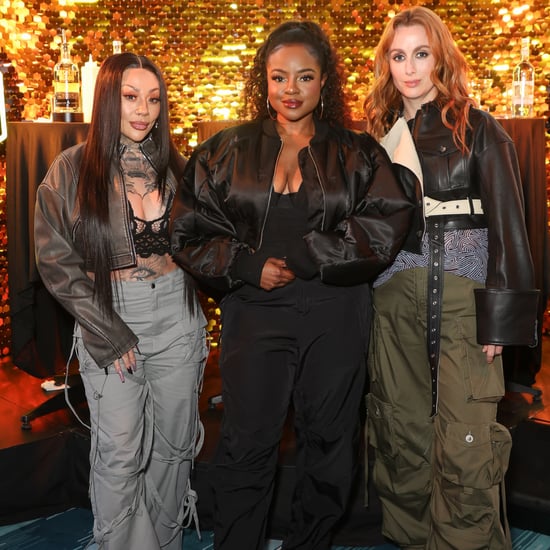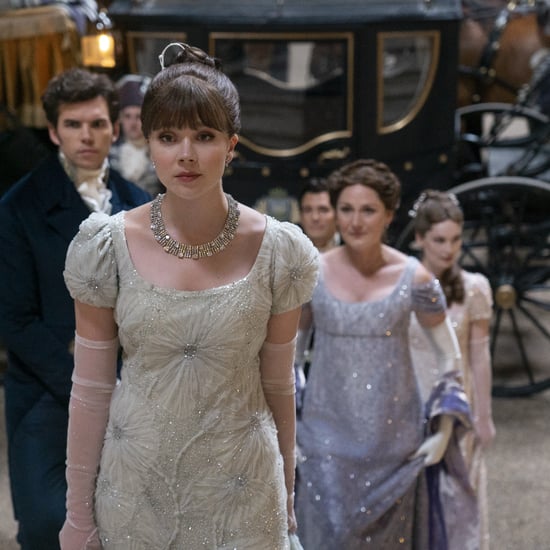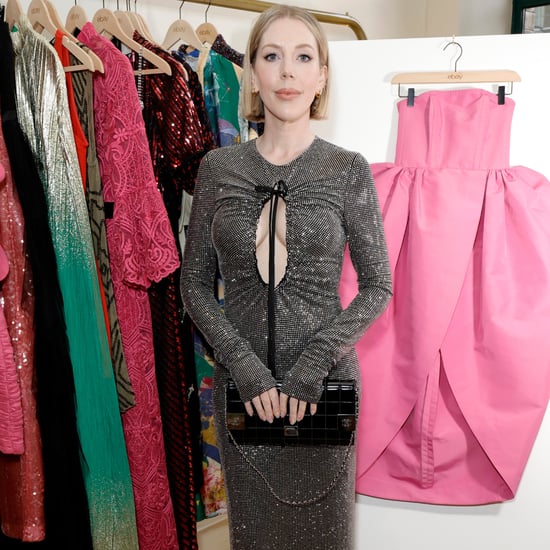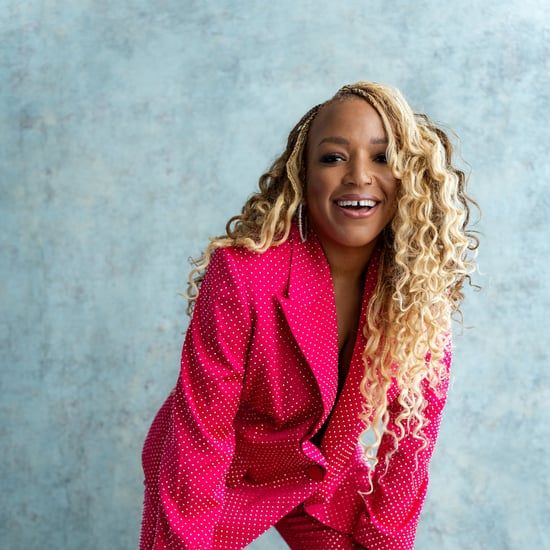Lucy Watson’s Postpartum Video Shows Things Aren't Universal
The Response to Lucy Watson’s Postpartum Video Just Proves Motherhood Isn't Universal

As anyone who raises their head above the parapet to talk about motherhood on any size of platform knows, it's a risky business. Too moany — you're scaring other women. Too happy — you're not being honest. Talk too much — you're acting like you're the first woman who's ever had kids. Too little — oh you think you're so above it! But listen, don't forget that it's important for women to be honest (read: have to share their trauma) so people don't feel alone. I mean, that actually is important and has helped a lot of women but … well, it's a difficult tightrope to walk.
The latest celebrity influencer to have found that "mumfluencing" isn't all just freebies and flowers is former "Made in Chelsea" star Lucy Watson, who this week posted an update on her motherhood journey on TikTok from her car.
"If you are in the trenches of having a newborn, this is what eight weeks postpartum looks like," she said. "I just got a facial with my favourite facialist. Feeling brand new. Picked up an oat matcha. Picked up some health food. I left my baby with my husband and some pumped milk. I've been driving around, blasting my music like a teenager, honestly.
@imlucywatson 8 weeks postpartum feeling like a new woman 🪄🪄🪄
♬ original sound - lucywatson
"I haven't really cried in a while. Well, I cried this morning because I thought I lost my pump charger. But I don't really have many meltdowns anymore. I'm telling you, eight weeks postpartum is it. It is it."
The internet kicked back. Hard. While some women complimented Watson, more ranged from mocking her to outright anger, with some even stitching with Watson to describe where they were at eight weeks postpartum.
"Just got a facial with my fav facialist 🤣 honestly no shade but the majority of mums version of a facial is the steam when they open the oven door for their kids chicken nuggets 😂" joked one commenter. "Mummas please know that this isn't even remotely the norm. I'm 15mo in, in the trenches of toddlerhood and still haven't had a facial (or even a haircut for that matter)," said another. "8 weeks postpartum I was still hysterically crying all day and it continued until 4 months PP but you do you babe x," was another post. Some said her video was "so far removed from reality" and recalled where they were at eight weeks postpartum, including one who said it was around this time they were admitted for postnatal psychosis. I felt this one in my soul: "Five years postpartum and still waiting to feel this."
It's important to say some women did praise Watson and said it was her prerogative to share her experience. "It's actually refreshing to hear about such a positive postpartum experience, TikTok is filled with a lot of doom and gloom. Love this for you" said one. "Guys she's just sharing that 8 weeks is a better stage for her. We'll all be different of course and this might not be everyone but it's a turning point for Lucy.🫶🏼💫 let's not hate."
Watson herself waded back into the comments to say: "8 weeks PP has been a turning point for me! Doesn't mean it will be for everyone, but for some it might be. Do I feel 100% myself? Obviously not, but I'm feeling much better & wanted to share 🥰"
If I can do exactly what many found so irritating about the original TikTok and offer some unsolicited advice almost six years postpartum, it would firstly be that this was perhaps a badly-timed post. It fell in Maternal Mental Health Awareness Week, a campaign by the Maternal Mental Health Alliance to raise awareness of perinatal mental health problems. On the day many women shared their stories of the struggle of early motherhood as part of the group's campaign with publication The Juggle to implement mental health check-ups at prenatal and antenatal appointments, Watson's video hit slightly different perhaps.
One thing I've learned (and haven't felt the need to share on TikTok) is that there's a real misunderstanding that sharing stories of motherhood (important of course for so many reasons) means motherhood is a universal experience. There are loads of moments when you'll connect with women (sometimes perched on a gym mat at a Baby Sensory class, other times watching social media videos) and do a big, "Oh my God, me TOO!" And there are plenty of things most women who've had children can and will bond over. But there are also loads of differences. Some have great births, many others don't. Some people are privileged and enjoying facials, others are struggling on statutory maternity pay and flogging everything that sits still on Vinted. Some babies feed easily, others don't. Some sleep — but don't worry, most don't.
The mistake Watson made (aside from not acknowledging her privileges, from her partner at home to having a "favourite facialist") for me, was in the framing of her video as a universal experience: "This is what eight weeks postpartum looks like." A little "for me" would've absolved a lot and probably carried her (I'm guessing) intended message of hope further. But in the same way I wish Lucy had made her message a bit more personalised, we also shouldn't expect that a new mother in very different circumstances will have the same journey as us.
What she's right about is that for most women, motherhood can get easier as the weeks go on. But that point when you start to "feel yourself" (whatever that looks like now) might come at eight weeks when you have a facial, it might be at six months when you get a few hours of sleep in a row, it might be when you have a night out with friends (and that will vary depending on you and your baby). To set a date is always going to wind women up.
That progress is also far from linear — there are good and bad days at all stages. If you were to ask me today how I was doing eight weeks after my first birth, I'd probably well-up, shake my head and not want to talk about it. I remember the start, back in 2018, being so difficult and so, so long. But in writing this piece, I looked at some pictures of what I was doing at eight weeks postpartum. Some memories popped up that I could've sworn were about five months in — at least. Some fun visits with friends and family, some moments of joy. Obviously (because I'm not an influencer) those times I was up all night crying and staring exhausted into the abyss aren't on my camera roll. I know they were still there.
Maybe Watson was just having a good day? They do happen at some point again for most women — and that's a reassuring message. But we don't really know, do we, what Watson's circumstances and inner thoughts are — that's why social media is a new parent's best and worst friend. Probably some parents found Watson's comments jarring too because she's early into her journey. They know there are many highs and lows to come for most parents. Some of those lows can come years, even decades, on.
Not everything is for everyone. With parenting (as in life) everyone's experience is different. Motherhood can bond and sharing stories may help someone out there, but no one person's story will help everyone. Much as there might be comfort in believing there's a universality, there's a danger in it too. Try to find comfort in the difference, because it means that no matter where you are in your journey, there is possibility for you too.
Rhiannon Evans is the interim content director at PS UK. Rhiannon has been a journalist for 17 years, starting at local newspapers before moving to work for Heat magazine and Grazia. As a senior editor at Grazia, she helped launch parenting brand The Juggle, worked across brand partnerships, and launched the "Grazia Life Advice" podcast. An NCE-qualified journalist (yes, with a 120-words-per-minute shorthand), she has written for The Guardian, Vice and Refinery29.


